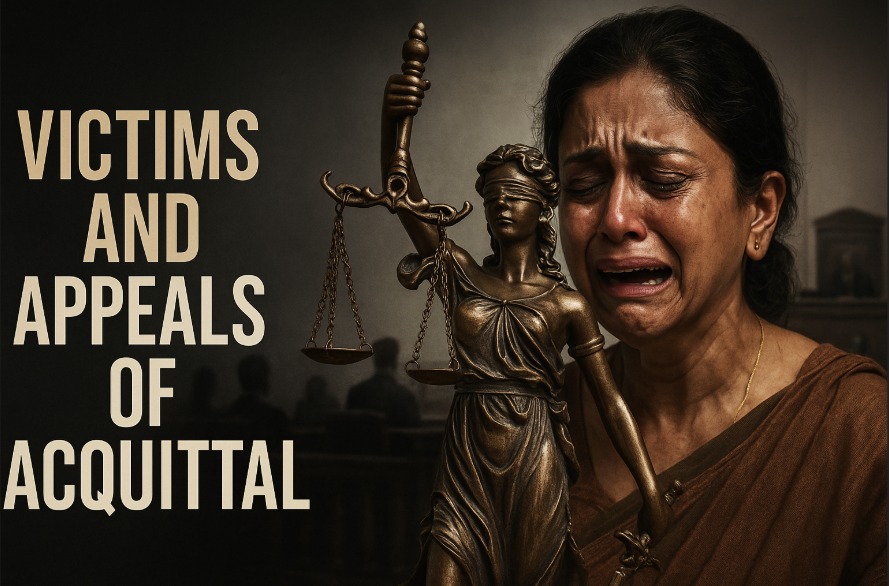Exploring the Supreme Court’s Verdict in Rekha Murarka v. State of West Bengal
Introduction: Justice Beyond the FIR
In the complex landscape of criminal justice, the difference between a complainant and a victim may seem trivial—but as recent courtrooms have revealed, it can make all the difference when it comes to seeking justice. A case from West Bengal posed a pivotal question before the Supreme Court: Can a victim who did not personally file the complaint still appeal an acquittal?
The case, Rekha Murarka v. State of West Bengal & Anr., illuminates not just a legal technicality, but a very real emotional and moral dilemma: what happens when the person most affected by a crime is left on the sidelines of justice?
The Background: A Woman’s Fight for Her Voice in Court
Rekha Murarka lost her son in a tragic incident. Though she did not file the First Information Report (FIR) herself, she was undoubtedly the mother of the victim—the one whose life had been altered forever. The criminal trial eventually ended in an acquittal of the accused, and Rekha, believing that justice had not been served, approached the High Court to challenge the acquittal under Section 372 of the Code of Criminal Procedure (CrPC).
Her appeal was dismissed on the ground that she was not the “complainant” in the eyes of the law. Disheartened but not defeated, she took the fight to the Supreme Court.
The Legal Question: Who is a “Victim” Under CrPC?
Section 372 of the CrPC allows a victim to file an appeal against an order of acquittal, but does not define who exactly qualifies as a “victim” when they aren’t the one who filed the complaint. The broader question thus emerged:
Does the right to appeal under Section 372 belong solely to the person who filed the complaint, or to the person who suffered the harm—even if they were not the complainant?
Supreme Court’s Observations: Bridging Technicalities and Humanity
The Supreme Court bench, comprising Justice Sanjay Kishan Kaul and Justice Hrishikesh Roy, took a balanced and thoughtful approach. They clarified that:
A “victim” under Section 2(wa) of CrPC includes anyone who has suffered loss or injury as a result of the crime.
Hence, being the complainant is not a prerequisite to appeal under Section 372.
A mother, father, spouse, or even a legal heir of the deceased victim can file an appeal if they are aggrieved by the acquittal.
The Court emphatically noted that justice cannot be denied on procedural grounds when the spirit of the law is to ensure redressal to those wronged.
Precedent and Principle: A Shift in Victim-Centric Jurisprudence
This judgment marks a progressive shift towards victim-centric justice in India. It reaffirms that the law must work for the people—especially those who bear the emotional and psychological scars of crime. The Court rightly cautioned against overly technical interpretations of the CrPC that exclude genuine victims from accessing justice.
Importantly, the Court also clarified that such appeals must still be entertained with leave of the Court, ensuring that frivolous or vindictive appeals do not flood the system.
Implications: Why This Matters to Every Indian
This ruling is more than a legal precedent—it is a message of hope to countless victims across India who feel powerless due to procedural constraints. It acknowledges that trauma is not defined by who signed the FIR, but by the impact of the crime.
For legal practitioners, this case urges greater empathy and a deeper understanding of victim rights. For society, it sets a precedent that the legal system must evolve to protect the emotional and moral interests of victims—not just their paperwork.
Conclusion: A Victory Beyond the Verdict
Rekha Murarka’s case isn’t just about her son’s death. It’s about every mother, father, spouse, or child who has lost someone and seeks justice—even when the system tells them they’re a step removed.
Thanks to this Supreme Court ruling, victims now have a stronger, clearer voice in appellate proceedings—even when they weren’t the first to report the crime. This is not just a legal clarification; it’s a moral course correction.
Key Takeaway
The Supreme Court has held that a victim who is not the original complainant still has the legal right to appeal an acquittal—so long as they are directly aggrieved by the crime.
Justice, after all, must be about healing and fairness—not merely forms and files.
AUTHOR
Pragya Jakhar is a second-year Lovely Professional University student pursuing a B.A. LL.B. (Hons.). Human rights and constitutional law particularly interest her. Pragya likes to write about legal subjects and is committed to improving and making the legal system more accessible to all.
Throughout the years, she has written numerous articles that examine important legal issues, and her growing comprehension of the operation of the law, both in books and in practice, allows her to contribute perceptive opinions to academic and policy discussions. She enjoys keeping up with news and significant court decisions.

